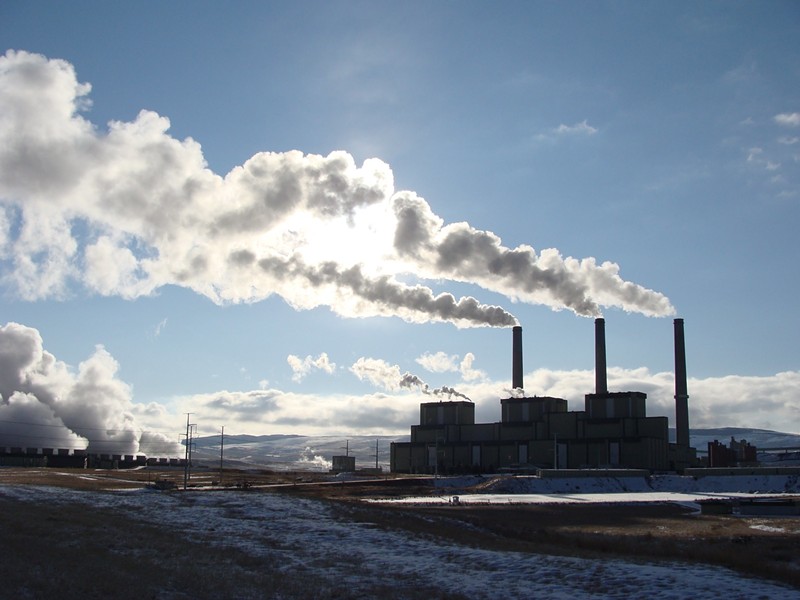This winter, high Xcel Energy bills got temperatures rising. Not temperatures in homes, but those in people’s hearts as bills nearly doubled for some — causing budget crunches.
The situation has gotten so severe that Governor Jared Polis issued directives to the Colorado Public Utilities Commission, the Colorado Energy Office and utility companies themselves to take action to get bills lower. The state legislature even formed a Joint Select Committee on Rising Utility Rates.
Still, despite those actions, people are fuming at Xcel for foisting unwanted costs on citizens, and the PUC is taking on a ruling that encapsulates some of the struggle. As the state works to transition to renewable energy, how much of the cost of shuttering coal plants early should Xcel be able to pass on to customers?
Xcel, which does business in the Centennial State as Public Service Company of Colorado (PSCo), is the only available option for gas and electricity for most residents in the Denver metro area. As a result, it’s regulated by the PUC — though many people feel the commission has failed to protect them in its dealings with the energy giant.
On March 21, residents showed up during a public comment hearing at the PUC on Xcel’s proposal to recover the outstanding netbook value and costs of decommissioning three coal plants, while also retiring the coal portion of another plant.
“The key question is not how should customers pay off Xcel’s mistakes,” said Leslie Glustrom at the hearing. “The key question is whether customers should be responsible for paying off Xcel’s mistakes, and it is your job to make sure it wasn't abuse.”
Glustrom and others argued that Xcel knew coal would be phased out as an energy source and that it could put the costs of shutting them down early onto its customers. In its application for cost recovery, Xcel proposes establishing a regulatory asset for each coal operation — Craig 2, Hayden 1, Hayden 2, and the coal portion of Pawnee — to be deferred on its balance sheet, then recovered over a seven-year period from ratepayers.
“In Public Service’s 2021 Electric Resource Plan and Clean Energy Plan proceeding, Public Service committed to accelerate emissions reductions even further by committing to transition its remaining coal fleet and end the Company’s reliance on coal generation,” Xcel’s application reads.
The company agreed to convert Pawnee by 2016, retire Hayden 2 by 2027, and retire Craig 2 and Hayden 1 in 2028. In that same settlement, it also vowed to retire Comanche 3, a coal plant in Pueblo, by 2031; a cost recovery hearing for Comanche 3 is upcoming.
Former Boulder City Councilor Steve Pomerance cited Comanche 3 in his public comment, arguing that the PUC needs to bring Xcel’s proposed return on investment down, or it needs to tell the company to shutter operations at Comanche immediately — and refuse to let it recoup costs in that proceeding.
“This has been known for eons how these utilities manipulate the situation, and it's time it stopped,” Pomerance said. “I'm asking you to finally make a decision. Go one way or go the other, but don't give them all their money.”
Pomerance noted that he helped write the bill that created the Office of Consumer Counsel — now called the Office of the Utility Consumer Advocate — which advocates for the people’s interest in PUC proceedings and was nominated to the PUC in 1983 by then-Governor Richard Lamm.
He was “turned down by the Republicans in the Senate, because they said if I got on the commission, there would not be any more coal plants built in Colorado,” Pomerance recalled at the hearing. “If I had gotten on and succeeded, we wouldn't be having this conversation, but here we are.”
He said that even back then it was known coal wasn’t sustainable, and now people are paying the price.
Others who testified at the March 21 hearing agreed with Pomerance, questioning why ratepayers should have to pay for past mistakes by Xcel.
“We keep hearing that they are stranded assets,” said RJ Harrington. “Yes, in economic parley that is accurate on the books. I would go so far as to say they're actually stranded liabilities. They are liabilities to our breathable atmosphere. They are liabilities to our progeny's habitable biosphere.”
David Takahashi pointed out that in cases where a utility isn’t publicly regulated, it would pay these early retirement costs.
“In regulated markets, it generally is landing on ratepayers,” he said. “Landing decommissioning costs on ratepayers when rate hikes have challenged home budgets while the utility is reaping record profits compares to a trip to hell in a handbasket.”
Xcel registered $1.7 billion in profits in 2022, making the company’s attempts at cost recovery seem offensive to those who commented.
Glustrom said that, sadly, it always seems to be a question of how much ratepayers should give Xcel in cost recovery proceedings rather than a question of if they should. Still, on the question of how much, she argued that the proposed return on investment of Xcel — which is over 10 percent for these projects — isn’t aligned with reality.
That ROI indicates that there was a risk, but Glustrom argued that Xcel was never in any actual danger, because it could always foist the risk off on its customers. A more appropriate ROI for a risk-free venture would be 3 or 4 percent, she suggested.
“The more money that you spend of your ratepayers’ dollars to build infrastructure — whether that infrastructure be stranded in ten years or fifty years — the higher in dollars your return is,” said another commenter, Jan Rose. “Therefore, they have every motivation to maximize the money spent on assets that they know will be stranded because they have a rate of return and a captive ratepayer base.”
Rose noted that letting Xcel recover however much it wants on these projects could incentivize the company to avoid being prudent with future infrastructure investments. Paul Culnan pointed out that it’s not just future projects that this PUC decision could impact, but also the Comanche 3 cost recovery proceeding.
“Maybe this is a chance to change course a little bit from what's happened in the past,” Culnan said. “I hope you'll be forward-looking in that regard.”
The PUC will hold its hearing on the proposal starting on April 6. These commenters hope the results will challenge Xcel rather than affirming its every desire.
“If you guys aren't willing to do it, then get somebody in there who's willing to do it, because we're tired of putting up with this compromise, compromise, compromise,” Pomerance admonished.
[
{
"name": "Air - MediumRectangle - Inline Content - Mobile Display Size",
"component": "12017618",
"insertPoint": "2",
"requiredCountToDisplay": "2",
"watchElement": ".fdn-content-body",
"astAdList": [
{
"adType": "rectangle",
"displayTargets": "mobile"
}
]
},{
"name": "Editor Picks",
"component": "17242653",
"insertPoint": "4",
"requiredCountToDisplay": "1",
"watchElement": ".fdn-content-body",
"astAdList": [
{
"adType": "rectangle",
"displayTargets": "desktop|tablet"
},{
"adType": "rectangle",
"displayTargets": "desktop|tablet|mobile"
}
]
},{
"name": "Inline Links",
"component": "18838239",
"insertPoint": "8th",
"startingPoint": 8,
"requiredCountToDisplay": "7",
"maxInsertions": 25
},{
"name": "Air - MediumRectangle - Combo - Inline Content",
"component": "17261320",
"insertPoint": "8th",
"startingPoint": 8,
"requiredCountToDisplay": "7",
"maxInsertions": 25,
"watchElement": ".fdn-content-body",
"astAdList": [
{
"adType": "rectangle",
"displayTargets": "desktop|tablet"
},{
"adType": "rectangle",
"displayTargets": "desktop|tablet|mobile"
}
]
},{
"name": "Inline Links",
"component": "18838239",
"insertPoint": "8th",
"startingPoint": 12,
"requiredCountToDisplay": "11",
"maxInsertions": 25
},{
"name": "Air - Leaderboard Tower - Combo - Inline Content",
"component": "17261321",
"insertPoint": "8th",
"startingPoint": 12,
"requiredCountToDisplay": "11",
"maxInsertions": 25,
"watchElement": ".fdn-content-body",
"astAdList": [
{
"adType": "leaderboardInlineContent",
"displayTargets": "desktop|tablet"
},{
"adType": "tower",
"displayTargets": "mobile"
}
]
}
]











